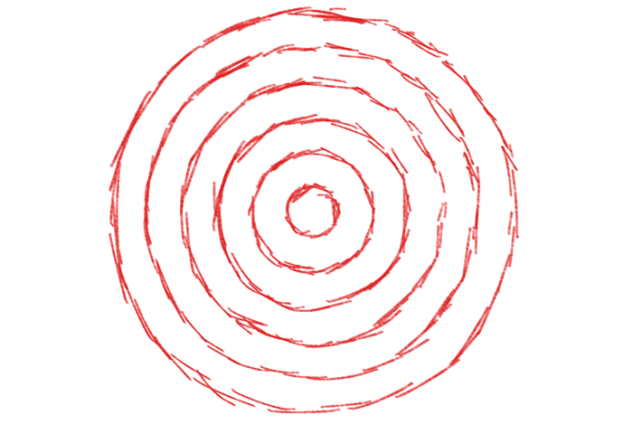Each of us lives at the center of a series of concentric circles, the closest one encompassing our immediate family members; the next, friends and neighbors; beyond that, co-religionists or fellow citizens of one’s country. At a distance removed even farther is the larger circle of human beings with whom we share similar values. And further out still, the circle encompassing the rest of humanity.
I once wrote an essay contending that it is no sin – in fact, it is proper – that we feel, and demonstrate, our deepest love for the circle closest to us. And greater concern for the next circle out than for those beyond it.
Some Jews seem embarrassed at the idea of Jews acting with special alacrity on behalf of fellow Jews. But they are misguided.
In fact, I suggested, the only way to feel any concern for the “outer circles” is to hone one’s love for those in one’s inner one first. Exercising the “empathy” muscle with regard to those closest to us is what allows us to have true empathy at all for those most distant.
Moshe Rabbeinu, the “most humble of all men,” was not naturally given to interfering in conflicts. And yet we find him doing so thrice in the parsha: First, by killing the Mitzri who was beating a Jew; second, by berating a Jew who was hitting another Jew; third, by standing up to the non-Jewish shepherds who were bullying the non-Jewish daughters of Yisro.
A dear talmidah of mine from long ago, Tanya Farber, suggested that my observation about how empathy for those distant from us is only enabled by first feeling, and acting upon, empathy for those close to us may inform Moshe’s interventions. What empowered Moshe’s decision to stand up for Tzlafchad’s daughters may have been his standing up earlier for fellow Jews.
The only way to truly “love humanity,” and not just mouth half-hearted concern for it, is to first concentrate on the easier, but essential and prime, endeavor of loving those to whom we are closest.
© 2024 Rabbi Avi Shafran
